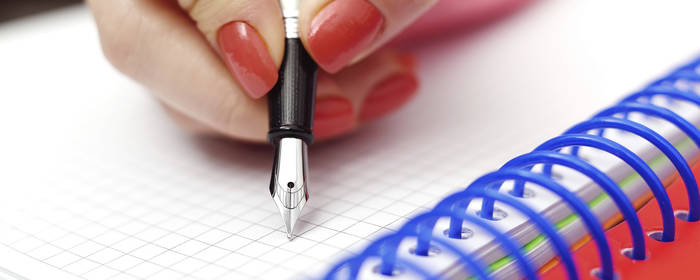Time gets away from all of us. Interruptions, crises, challenges and opportunities—stuff— happen, and before you know it, your week has gotten away from you—again.
Sound familiar?
No matter how hectic and fast-paced your job, one thing never changes: the amount of time you have at your disposal. That’s why how you use your time is everything.
Here are some habits to embrace to help you maximize your time, your personal productivity and your week:
Plot out your week.
Sometime over the weekend, preferably on Sunday night, take a look at your long-range goals. Think about what you hope to accomplish this month and this year.
Then take a look at your calendar. Some times are already assigned to meetings, activities, etc. Slot tasks that help you accomplish your long-range goals into your open times. If you don’t, interruptions will make you lose focus and lose traction and momentum on your long-term goals.
Start every week with a plan; if you don’t, other people will plan your week for you.
Create actual task times.
Everyone puts meetings and appointments on their calendars. Very few people block out time to work on their own specific projects. (“Meet with accounting” is on your calendar; “complete proposal” is not.)
If you don’t block out time to get done what you truly need to get done, other things will fill that time—co-worker requests, emergencies, and crises— and your important projects won’t get done.
Make a to-do list that makes sense.
Everyone also creates to-do lists with more items than they could ever accomplish. That turns a to-do list into a wish list and makes you wish you had more time. If you have 14 hours of tasks on your list, they won’t get done.
So go one step further: assign times to specific tasks. Not only will you get a better handle on your workday, but also you’ll be more focused on completing specific tasks in the amount of time you projected.
And you’ll definitely try harder to ignore distractions and unnecessary interruptions.
Exercise before work.

Research shows that exercise is not just energizing; it also can improve your mood for as long as 12 hours.
You’ll get a boost of energy, improve your health and increase your level of happiness. How great is that?
Quit multitasking.
Think you can do two things at once? You can, but you’ll do both of those things poorly. Never try to do two or three things satisfactorily. Do one thing exceptionally well and then move on to the next thing. You’ll actually be more productive, not less.
Plan to use your “dead” time.
We all have “dead” time—waiting in the lobby, waiting for a meeting to start, waiting for a call to be returned, etc. Focus hard on using that time productively.
Always have two or three non-pressing tasks on hand that you can work on anywhere: reports to review, emails to write or articles or journals to read. Never find yourself stuck with nothing productive to do.
Anything you do during “dead” time is something you won’t have to do later.
Monitor your time.
A number of apps let you track how you spend your time. Try one. You’ll be (unpleasantly) surprised by how much time you spend doing things that aren’t particularly productive—or important.
And you’ll quickly learn to stay focused on what is truly important.
Be productive at lunch.

No, you don’t have to eat at your desk. But you can make lunch productive. Eat with co-workers you don’t normally see. Take a walk. Do something personally productive. Network.
Think of lunch as a way to take a break and recharge and also to do something awesome for yourself or for your company. If you’re thoughtful about it, those two goals are not mutually exclusive.
“Schedule” your family time, too.

When your work week gets away from you, what usually gives first? Family time.
Don’t let that happen. Mentally block out times when work simply cannot intrude. And stick to that schedule.
After all, no one looks back on their career and wishes they had spent more time at work.
Subscribe to Café Quill and follow us on social media for more tips on a quick and easy makeup look for hectic mornings.



